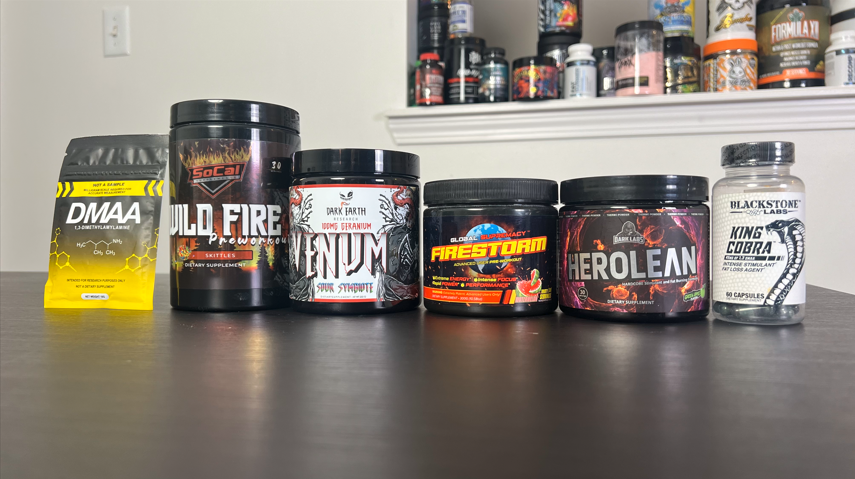
You're here because you've heard of DMAA and its powerhouse reputation in the fitness world.
But can you actually buy it?
This guide dives straight into the heart of DMAA – where it stands legally, where you can find it, and what risks it carries.
Whether you're a fitness enthusiast or just curious, you're in the right place for clear, straightforward answers about DMAA's availability and safety.

DMAA is available online; in the USA and EU, it's illegal in dietary supplements but not explicitly banned for personal use, while in the UK and Australia, personal use regulations vary.
Here's what you need to know:
This overview provides a snapshot of the complexities surrounding the online purchase of DMAA.
Read on for a detailed exploration of each of these points, helping you make an informed decision.

In the United States:
European Union:
United Kingdom:
Online Availability:
This section aims to provide a clear understanding of the legal status of DMAA in key regions, focusing on both its use in supplements and for personal purposes.
It's important to note that while DMAA can be found online, its purchase and use carry potential legal and health risks.

DMAA is known for its powerful stimulant effects, but it's important to be aware of the potential health risks involved. These risks are not just minor side effects; they can have serious implications:
Understanding these risks is crucial. While DMAA can be effective for boosting energy and focus, the potential health consequences should be carefully considered.

1,3-Dimethylamylamine (DMAA) is a synthetic drug with a structure similar to ephedrine and adrenaline.
It was originally developed as a nasal decongestant in the mid-20th century but has gained popularity recently as a key ingredient in dietary supplements used for weight loss, bodybuilding, and performance enhancement.
DMAA is known for its stimulant effects, providing users with increased energy, focus, and stamina.

The primary effects of DMAA are due to its sympathomimetic activity.
This means it mimics the effects of our body's natural stimulants, adrenaline, and noradrenaline, leading to increased heart rate, blood pressure, and bronchial relaxation.
Users often report feelings of energy, focus, and euphoria. It's also been reported to enhance weight loss and improve athletic performance.
However, these effects can vary greatly depending on the individual and the dosage used. More about the effects of DMAA

DMAA has several reported benefits, particularly in fitness and bodybuilding.
These include increased energy, improved focus, enhanced mood, and greater endurance.
Some users also report that DMAA helps with weight loss by suppressing appetite and boosting metabolism.
However, it's important to note that while these benefits can be significant, they come with the risk of side effects and should be weighed carefully.
More about the benefits of DMAA

While DMAA can provide significant benefits, it also has potential side effects.
These can include increased heart rate and blood pressure, shortness of breath, chest tightness, and even heart attack in severe cases.
Other side effects can include nervousness, irritability, headache, and dizziness.
There have also been reports of more severe neurological and psychological conditions.
More about the side effects of DMAA

Scientifically, DMAA is known to be a potent central nervous system stimulant.
It works by causing the release of norepinephrine, a neurotransmitter that plays a key role in the 'fight or flight' response, which prepares the body for action.
This leads to the various effects associated with DMAA, including increased heart rate, blood pressure, and bronchial relaxation.
However, the full mechanisms of action for DMAA are not fully understood, and more research is needed in this area.
If you're considering DMAA, it's essential to approach it with caution and awareness:
Remember, while DMAA might offer certain benefits, it's important to stay informed and prioritize your health and legal standing.

For those seeking alternatives to DMAA that are both effective and safer, consider the following options:
These alternatives are not only legal and readily available but also offer a safer way to boost your energy and performance without the risks associated with DMAA.
What is DMAA?
DMAA, or 1,3-dimethylamylamine, is a stimulant originally developed as a nasal decongestant but has been used in dietary supplements.
Is DMAA natural?
While DMAA has been marketed as a natural compound derived from geraniums, this claim is disputed, and most authorities consider it a synthetic substance.
Is DMAA legal?
The legality of DMAA varies by country. In the U.S., the FDA has stated that DMAA is not a legal dietary ingredient.
What are the benefits of DMAA?
DMAA has been used for its stimulant effects, such as increased energy and focus. However, these benefits are not well-studied, and the use of DMAA carries potential risks.
What are the risks of DMAA?
DMAA has been associated with a number of adverse events, including cardiovascular problems and neurological effects. It can also interact with other substances, increasing these risks.
Can I buy DMAA?
While the sale of DMAA is illegal in many countries, it can still be found in some online marketplaces. However, purchasing DMAA carries legal and health risks.
Is DMAA safe?
The safety of DMAA is disputed. While some argue that it is safe when used responsibly, most health authorities advise against its use due to potential health risks.
Can DMAA be used for weight loss?
DMAA has been used in weight-loss supplements due to its stimulant effects. However, its effectiveness for weight loss is not well-studied, and it carries potential risks.
Can DMAA be used for pre-workout?
DMAA has been used in pre-workout supplements due to its stimulant effects. However, its effectiveness for this use is not well-studied and carries potential risks.
What is the recommended dosage of DMAA?
The recommended dosage of DMAA varies, but most sources suggest not exceeding 50-75 mg in a day. However, any DMAA use should be cautiously approached due to potential health risks.
While it is technically possible to buy DMAA online, it is not legally sold for human consumption, and its use carries potential health and legal risks.
It's recommended to consider safer, legal alternatives for enhancing workout performance and weight loss.
Useful Links
 About FitFrek
About FitFrekFitFrek operates as an independent platform, offering comprehensive workouts, programs, routines, guides, and unbiased reviews to accelerate your progress. We pride ourselves on our honesty, delivering straightforward and candid insights. FitFrek does not offer medical advice, diagnosis, or treatment services.